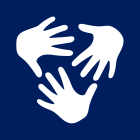Not for Sale - Say stop to human trafficking
Discussion details
Slavery is still a reality, only now it’s called “human trafficking”.
Trafficking of humans is the second-largest criminal industry in the world (after drugs), with tens of billions of dollars generated each year. There are an estimated 2.5 million of victims worldwide, according to the United Nation Office on Drugs and Crime (1) (UNODC).
In order to fight this modern human exploitation, joint actions and efforts are needed. One such project is Not for Sale - Say stop to human trafficking: a trilateral cooperation between Ukraine, Romania and the Republic of Moldova. The project was described at a recent event on “European Neighborhood Instrument Cross-Border Cooperation (ENI CBC)”, which provides funding for Not for Sale together with participating countries.
This eight month, small-scale CBC project works in partnership with local non-governmental organisations (NGOs) from the three borders. According to Raluca Frîncu, project manager of the lead partner NGO, Save the Children, it aims to “stop human trafficking, bring awareness of the cross-border problem and try to prevent or maybe combat human trafficking in the programme area” .

NGOs spoke with young people in the hope that they would raise awareness of human trafficking among their peers
Following the moto “Common borders, Common Solutions”, NGOs have identified the common challenges they are facing. In Europe, simplified border crossing procedures have enabled more opportunities for the illegal transportation of people. Due to their geographic situation, Ukraine, Romania and Moldova are important source, transit and destination countries for labor and sex trafficking. The poor economic development in this area and high rates of unemployment make many people leave their country in search of better opportunities, which can also lead to potential trafficking situations. According to the 2009 UNODC Report (3), sexual exploitation (79%) is the most common form of human trafficking, followed by forced labour (18%). This may be an underestimate however, as forced labour is hard to rate and demonstrate.
The different victims’ testimonies (4) describe how this vicious circle of violence spreads, and how it often starts with deceit. Surprisingly, most of the victims personally knew their traffickers beforehand, often as a friend’s relative or family member. Women now also make up a significant amount of traffickers. In a system based on fear and power, prevention is key.
How to break this circle? “By raising awareness, joint actions, exchange of experiences and best practices between people and communities living in border areas”, Ms Frîncu said.
To achieve this target “Save the Children” works with young volunteers and professionals. The prevention is facilitated by young volunteers through seminars, short videos, open discussions or even theatre pieces (5). The NGOs found young volunteers have a bigger impact because “children better listen to people of the same age and they can achieve a level of comfort and trust that is difficult for adults to match“
The work with professionals is based on training, exchange of experiences and best practice behavior, strengthened thanks to the CBC. “Teachers, social assistant, [and] psychologists attend seminars to acknowledge their role on identifying or preventing human trafficking,” explained Ms Frîncu. Volunteers and professionals’ networks, as well as educational institutions are used as platforms to raise awareness and facilitate campaigns.
Thanks to the trilateral cooperation under the CBC initiative, the impact of every action is multiplied.
“In each country, we developed a relation with public institution and professionals and we have a good impact from them. We have chosen our partners with experience to be able to learn from them and them to learn from us,” Ms Frîncu said.
Since the beginning of the project, more than 100 volunteers and 150 professionals have been trained from the three countries.
* (Save the Children (Lead Partner) and the National Agency against Trafficking in Persons from Romania, the Helsinki Committee for Human Rights and the JUNACT Non-governmental Organization from Moldova, the Romanian Youth League "JUNIMEA" from Ukraine)
(1) http://www.unodc.org/unodc/en/human-trafficking/what-is-human-trafficking.html?ref=menuside
(2) www.ro-ua-md.net
(3) http://www.unodc.org/documents/Global_Report_on_TIP.pdf
(4) https://www.youtube.com/watch?v=Lfz0-h7YJ6o
(5) https://www.youtube.com/watch?v=elrDPtxUKUY
Article by Heloise Texier

Log in with your EU Login account to post or comment on the platform.